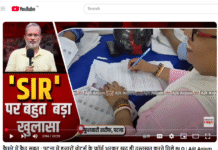The International News Media Association (INMA) will conduct a virtual world congress in May under the theme “Re-Thinking News Media In the Age of Coronavirus.” The virtual world congress will be conducted across nine modules, include 18 hours of programming, and feature 35+ speakers. In addition to the livestream event, Congress attendees will receive all video recordings of the sessions and all of the presentations.
The virtual conference – which starts on 5 May with the first module and concludes on 28 May with the ninth module – is being billed as “what news publishers need to know now to survive the COVID-19 ripple.” A website with complete virtual world congress information has been created and may be found at www.inma.org/worldcongress.
The online conference will focus on nine subjects:
Where news media goes next after COVID-19,
Subscription experiences amid the surge: opportunities in chaos,
Advertising in crisis: navigation and uplift,
Smart data in the shadow of the cookiepocalypse,
Building brand and community: How will you be remembered post-crisis?
The content to commerce revolution,
Brainsnacks: quick ideas you can apply immediately,
Business model innovation and creating new value,
News media outlook 2021: what to expect next.
“The ripple effect of COVID-19 has created economic strains on the business model of news media companies,” said Earl J. Wilkinson, executive director, and chief executive officer of INMA. “As we re-create the spirit of INMA’s World Congress in a premium virtual setting, INMA focuses on what publishers need to know in this age of coronavirus.”
Virtual congress speakers were originally scheduled to speak at the association’s World Congress of News Media in Paris in late April, which was canceled due to the COVID-19 pandemic. Topics have morphed into a deeper focus on the emerging “new normal” confronting media companies.
“So much has changed in the past six weeks, and we believe the timely subjects, the world-class speakers, and the timing of this virtual world congress will give media executives hope and inspiration to navigate this new environment,” Wilkinson said. “Journalism-based organizations still have a mission. We still need to operate companies that support that mission. And we need to empower those charged with that mission – now more than ever – with context and ideas and peer connections. That’s what we’re aiming to achieve with the Virtual World Congress.”












